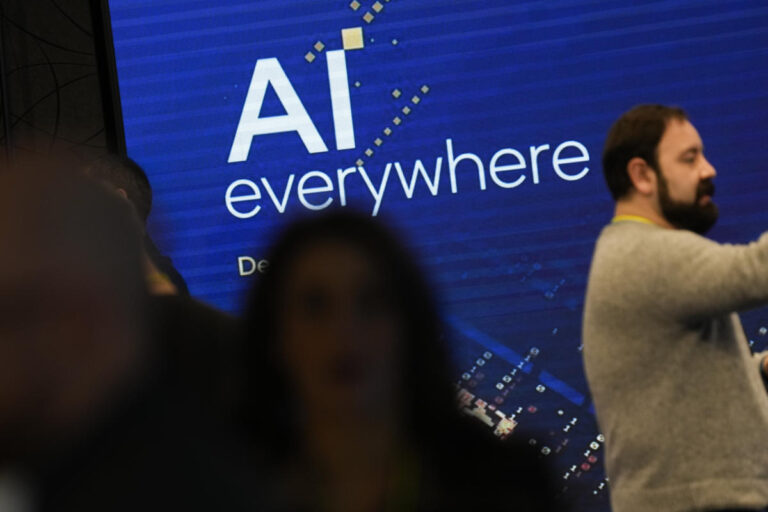The AI PC and AI smartphone markets are expected to explode in 2024 and 2025. According to research firm Gartner's analysis, smartphone manufacturers are expected to ship approximately 240 million AI smartphones in 2024, and AI PC vendors are expected to ship 54.5 million units in 2024. Year.
“On-device GenAI capabilities and the rapid adoption of AI processors will eventually become standard requirements for technology vendors,” Ranjit Atwal, senior director analyst at Gartner, said in a statement.
“This ubiquity creates challenges for vendors to differentiate themselves from competitors, making it difficult to create unique selling points and drive revenue growth.”
AI PCs are laptops and desktops with neural processing units (NPUs) specifically designed to handle AI tasks, such as generative AI apps. Intel (INTC), AMD (AMD), and Qualcomm (QCOM) offer or are preparing to offer chips with built-in NPUs designed to be inserted into some of the newest PCs on the market.
For Intel, this includes systems with its Core Ultra chip series, which is currently only found in premium laptops priced above $900.
On the other hand, an AI smartphone is a smartphone with a processor and neural engine powerful enough to perform AI tasks on the device. Google's Pixel 8 and Pixel 8 Pro and Samsung's S24 series of smartphones are some of the first to receive the AI smartphone label.
Although the number of AI devices is still relatively limited at the moment, we believe that they will ultimately account for 22% of all PC shipments and 22% of basic and premium smartphone shipments by the end of the year. Gartner says. This will increase from 1% of smartphone shipments and 10% of PC shipments in 2023.
There's just one problem. There are still no truly impressive use cases for AI PCs or AI smartphones that make them worth buying over comparable products. The essential improvements from new generations of PC chips are the reason you buy an Intel, AMD, or Qualcomm-powered laptop or desktop, not just because it has an NPU.
And you'll probably choose a Samsung or Google phone because you prefer the overall functionality, not because it's marketed as an AI smartphone.
So far, the main selling point of these devices is the ability to perform some generative AI tasks locally, without relying on cloud services. This means your data is stored on your PC or smartphone instead of being sent to the cloud. This provides some security and privacy benefits since the information no longer has to travel around his web.
However, being able to run programs like AI image generation apps and ChatGPT on PCs and smartphones is not necessarily an attractive or marketable feature. This is especially true for PCs. Because PCs already have Microsoft's cloud-based Copilot AI software built directly into Windows. If so, why do we need an AI PC?
PC chip makers in particular have been outspoken about the fact that they're waiting for developers to come up with new killer apps that take advantage of onboard generative AI capabilities to encourage consumers to buy AI PCs.
According to Atwal, AI PC and smartphone features will drive device sales around 2027 as more AI-based features come to market. In the case of smartphones, he said, that means devices that can better understand users' needs.
So why will sales of AI PCs and AI smartphones soar this year? Because consumers will start replacing the devices they purchased at the beginning of the pandemic, and many of them will be AI PCs and AI smartphones. Because those features are available with the best technology.
But eventually, AI PCs and AI smartphones will offer unique capabilities that their non-AI siblings cannot perform.
“This evolution will transform smartphones into even more intuitive companions that can understand and respond to human language and visual cues, taking the overall user experience to new heights,” Atwal said. explained.
For now, the AI PC and AI smartphone revolutions are still in their early stages. But as the technology matures, these will likely become the only PCs and smartphones we know.
Daniel Howley I'm the technology editor at Yahoo Finance. He has been covering the technology industry since his 2011. You can follow him on Twitter. @Daniel Howley.
Click here for the latest earnings report and analysis, earnings whispers and expectations, and company earnings news.
Read the latest financial and business news from Yahoo Finance

